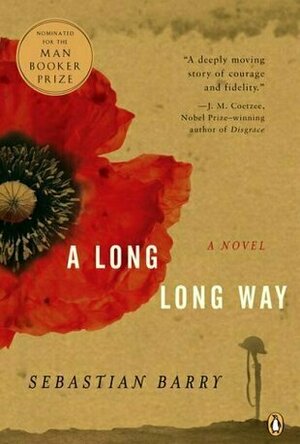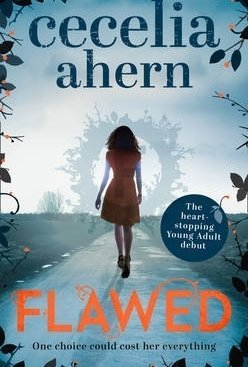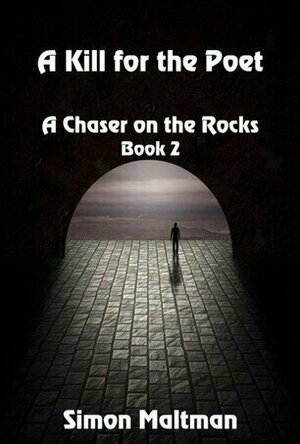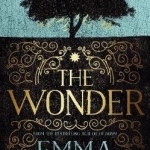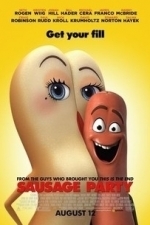Search
Search results
Chris Hooker (419 KP) rated The Girl Who Came Home in Books
Jan 12, 2018
[The Girl Who Came Home] by [Hazel Gaynor] will appeal to fans of the movie Titanic. Fortunately this story has more depth and more believable characters.
[Gaynor] tells the story of Maggie, and Irish girl, who is leaving her home to travel to America with her aunt after the death of her mother. Maggie does not want to leave unlike those she is traveling with since she is in love.
This novel does a good job mixing history with fiction and making it believable. It is also told as a memory to Maggie's granddaughter, Grace, who has made her own sacrifices for family. It is an enjoyable read with a slight twist at the end.
[Gaynor] tells the story of Maggie, and Irish girl, who is leaving her home to travel to America with her aunt after the death of her mother. Maggie does not want to leave unlike those she is traveling with since she is in love.
This novel does a good job mixing history with fiction and making it believable. It is also told as a memory to Maggie's granddaughter, Grace, who has made her own sacrifices for family. It is an enjoyable read with a slight twist at the end.
Erika (17789 KP) rated A Long Long Way in Books
Mar 22, 2020
I got this nookbook on sale for $1.99. I'm glad I only spent that. I enjoy Great War fiction, and the added dynamic of the Easter Uprising of 1916 made me even more interested in it.
This book started out so slowly, and some of the descriptions felt completely unnecessary. I don't want to read about every time someone let their bowels go when they were scared literally and figuratively sh--less.
The one positive is that I felt like the dynamic of the Irish soldiers coming back to an Ireland they didn't recognize, and that they were considered traitors in some ways because they were fighting with the English.
Never expect a happy ending to a book (or any media) about soldiers in the Great War.
This book started out so slowly, and some of the descriptions felt completely unnecessary. I don't want to read about every time someone let their bowels go when they were scared literally and figuratively sh--less.
The one positive is that I felt like the dynamic of the Irish soldiers coming back to an Ireland they didn't recognize, and that they were considered traitors in some ways because they were fighting with the English.
Never expect a happy ending to a book (or any media) about soldiers in the Great War.
Debbie (52 KP) rated The Immigrant Brides Romance Collection in Books
Mar 20, 2019
The Immigrant Brides Romance Collection Review
The Immigrant Brides Romance Collection
9 Stories Celebrate Settling in America
By: Irene B. Brand; Kristy Dykes; Nancy J. Farrier; Pamela Griffin; Joann A Grote; Sally Laity; Judith McCoy Miller; and Janet Spaeth
Barbour Publishing, Inc
Barbour Books
Christian, Romance
Publish Dater 1 March 2019
444 Pages
#TheImmigrantBridesRomanceCollection #NetGalley
<img src="https://www.netgalley.com/badge/23cda8f5b390052c84bafb486921760c8733c9f5"; width="80" height="80" alt="10 Book Reviews" title="10 Book Reviews"/>
<img src="https://www.netgalley.com/badge/9a41056d7201c045d3f9e5c161f9569494687ae1"; width="80" height="80" alt="Professional Reader" title="Professional Reader"/>
I read this book a little while ago so my review will be very short. It is also hard for me to review a short story collection. I did enjoy this book because it is historical fiction. The stories draw you in and you can feel what each character is going through. There are two stories that deals with Chinese immigrants and what they go through and how they are treated.
My favorite story is about an Irish immigrant who becomes a teacher. I love that her family was very supportive and how the young man who is interested in her helps her out also even though she doesn't give him the light of day.
I would recommend this book for you read.
The Immigrant Brides Romance Collection
9 Stories Celebrate Settling in America
By: Irene B. Brand; Kristy Dykes; Nancy J. Farrier; Pamela Griffin; Joann A Grote; Sally Laity; Judith McCoy Miller; and Janet Spaeth
Barbour Publishing, Inc
Barbour Books
Christian, Romance
Publish Dater 1 March 2019
444 Pages
#TheImmigrantBridesRomanceCollection #NetGalley
<img src="https://www.netgalley.com/badge/23cda8f5b390052c84bafb486921760c8733c9f5"; width="80" height="80" alt="10 Book Reviews" title="10 Book Reviews"/>
<img src="https://www.netgalley.com/badge/9a41056d7201c045d3f9e5c161f9569494687ae1"; width="80" height="80" alt="Professional Reader" title="Professional Reader"/>
I read this book a little while ago so my review will be very short. It is also hard for me to review a short story collection. I did enjoy this book because it is historical fiction. The stories draw you in and you can feel what each character is going through. There are two stories that deals with Chinese immigrants and what they go through and how they are treated.
My favorite story is about an Irish immigrant who becomes a teacher. I love that her family was very supportive and how the young man who is interested in her helps her out also even though she doesn't give him the light of day.
I would recommend this book for you read.
Author's new direction
This ARC was provided by the publisher via NetGalley in exchange for an honest review
Cecelia Ahern is the well-known Irish author of contemporary women’s fiction, particularly P.S. I Love You. However, Ahern has decided to branch out and has penned her first dystopian, young adult novel, Flawed. It is dubious when an author, who is loved for her work, changes their style, but it appears she has pulled it off.
Seventeen-year-old Celestine is a logical girl who is soon to learn she lives in an illogical world. In an attempt to create a perfect society, citizens must avoid making moral or ethical mistakes; otherwise they will be branded as Flawed. And branded means literal branding with a hot iron, there is no hiding the fact that they have flaws. Celestine, like everyone else, has been brainwashed into believing that Flawed people should be avoided and do not deserve the same privileges as the “perfect” people. However, after seeing an elderly Flawed man choking on a bus, her logical brain kicks in and goes to help him. Big mistake.
After finding herself accused of being Flawed, Celestine reaslises how corrupt society is, yet there is nothing she can do about it without enduring further punishment. Despite her bleak outlook on her future, her hopes begin to rise when she discovers that there are people on her side – people that want rid of the government that disciplines people when they should not be punished in the first place.
As a reader of Ahern’s previous works and a fan of dystopian fiction, I honestly did not expect Flawed to be any good. Ahern has proved she has the talent to write women’s fiction, but this book was a complete contrast. The first few chapters of the novel were admittedly a bit shaky. It did not look promising. Yet eventually Ahern found her flow and produced a pretty good young adult novel.
When I saw the title, Flawed, I immediately assumed it would be a book about physical appearance and was hesitant about reading it. Therefore I was pleasantly surprised when this was not the case at all. The concept is fresh and original and does not become apocalyptical like many other dystopian fictions.
How the majority will receive this book is difficult to say. Fans of Cecelia Ahern may be disappointed by her change in genre. Fans of dystopia may be put off by the author’s previous novels. I urge readers to approach this story with an open mind; you may be pleasantly surprised. Flawed will not look out of place amongst other books of similar themes, and for those who do enjoy it, there will be a sequel, Perfect, next year.
Cecelia Ahern is the well-known Irish author of contemporary women’s fiction, particularly P.S. I Love You. However, Ahern has decided to branch out and has penned her first dystopian, young adult novel, Flawed. It is dubious when an author, who is loved for her work, changes their style, but it appears she has pulled it off.
Seventeen-year-old Celestine is a logical girl who is soon to learn she lives in an illogical world. In an attempt to create a perfect society, citizens must avoid making moral or ethical mistakes; otherwise they will be branded as Flawed. And branded means literal branding with a hot iron, there is no hiding the fact that they have flaws. Celestine, like everyone else, has been brainwashed into believing that Flawed people should be avoided and do not deserve the same privileges as the “perfect” people. However, after seeing an elderly Flawed man choking on a bus, her logical brain kicks in and goes to help him. Big mistake.
After finding herself accused of being Flawed, Celestine reaslises how corrupt society is, yet there is nothing she can do about it without enduring further punishment. Despite her bleak outlook on her future, her hopes begin to rise when she discovers that there are people on her side – people that want rid of the government that disciplines people when they should not be punished in the first place.
As a reader of Ahern’s previous works and a fan of dystopian fiction, I honestly did not expect Flawed to be any good. Ahern has proved she has the talent to write women’s fiction, but this book was a complete contrast. The first few chapters of the novel were admittedly a bit shaky. It did not look promising. Yet eventually Ahern found her flow and produced a pretty good young adult novel.
When I saw the title, Flawed, I immediately assumed it would be a book about physical appearance and was hesitant about reading it. Therefore I was pleasantly surprised when this was not the case at all. The concept is fresh and original and does not become apocalyptical like many other dystopian fictions.
How the majority will receive this book is difficult to say. Fans of Cecelia Ahern may be disappointed by her change in genre. Fans of dystopia may be put off by the author’s previous novels. I urge readers to approach this story with an open mind; you may be pleasantly surprised. Flawed will not look out of place amongst other books of similar themes, and for those who do enjoy it, there will be a sequel, Perfect, next year.
<i>This ARC was provided by the publisher via NetGalley in exchange for an honest review </i>
Cecelia Ahern is the well-known Irish author of contemporary women’s fiction, particularly <i>P.S. I Love You.</i> However, Ahern has decided to branch out and has penned her first dystopian, young adult novel, <i>Flawed</i>. It is dubious when an author, who is loved for her work, changes their style, but it appears she has pulled it off.
Seventeen-year-old Celestine is a logical girl who is soon to learn she lives in an illogical world. In an attempt to create a perfect society, citizens must avoid making moral or ethical mistakes; otherwise they will be branded as Flawed. And branded means literal branding with a hot iron, there is no hiding the fact that they have flaws. Celestine, like everyone else, has been brainwashed into believing that Flawed people should be avoided and do not deserve the same privileges as the “perfect” people. However, after seeing an elderly Flawed man choking on a bus, her logical brain kicks in and goes to help him. Big mistake.
After finding herself accused of being Flawed, Celestine reaslises how corrupt society is, yet there is nothing she can do about it without enduring further punishment. Despite her bleak outlook on her future, her hopes begin to rise when she discovers that there are people on her side – people that want rid of the government that disciplines people when they should not be punished in the first place.
As a reader of Ahern’s previous works and a fan of dystopian fiction, I honestly did not expect <i>Flawed</i> to be any good. Ahern has proved she has the talent to write women’s fiction, but this book was a complete contrast. The first few chapters of the novel were admittedly a bit shaky. It did not look promising. Yet eventually Ahern found her flow and produced a pretty good young adult novel.
When I saw the title, <i>Flawed</i>, I immediately assumed it would be a book about physical appearance and was hesitant about reading it. Therefore I was pleasantly surprised when this was not the case at all. The concept is fresh and original and does not become apocalyptical like many other dystopian fictions.
How the majority will receive this book is difficult to say. Fans of Cecelia Ahern may be disappointed by her change in genre. Fans of dystopia may be put off by the author’s previous novels. I urge readers to approach this story with an open mind; you may be pleasantly surprised. <i>Flawed</i> will not look out of place amongst other books of similar themes, and for those who do enjoy it, there will be a sequel, <i>Perfect</i>, next year.
Cecelia Ahern is the well-known Irish author of contemporary women’s fiction, particularly <i>P.S. I Love You.</i> However, Ahern has decided to branch out and has penned her first dystopian, young adult novel, <i>Flawed</i>. It is dubious when an author, who is loved for her work, changes their style, but it appears she has pulled it off.
Seventeen-year-old Celestine is a logical girl who is soon to learn she lives in an illogical world. In an attempt to create a perfect society, citizens must avoid making moral or ethical mistakes; otherwise they will be branded as Flawed. And branded means literal branding with a hot iron, there is no hiding the fact that they have flaws. Celestine, like everyone else, has been brainwashed into believing that Flawed people should be avoided and do not deserve the same privileges as the “perfect” people. However, after seeing an elderly Flawed man choking on a bus, her logical brain kicks in and goes to help him. Big mistake.
After finding herself accused of being Flawed, Celestine reaslises how corrupt society is, yet there is nothing she can do about it without enduring further punishment. Despite her bleak outlook on her future, her hopes begin to rise when she discovers that there are people on her side – people that want rid of the government that disciplines people when they should not be punished in the first place.
As a reader of Ahern’s previous works and a fan of dystopian fiction, I honestly did not expect <i>Flawed</i> to be any good. Ahern has proved she has the talent to write women’s fiction, but this book was a complete contrast. The first few chapters of the novel were admittedly a bit shaky. It did not look promising. Yet eventually Ahern found her flow and produced a pretty good young adult novel.
When I saw the title, <i>Flawed</i>, I immediately assumed it would be a book about physical appearance and was hesitant about reading it. Therefore I was pleasantly surprised when this was not the case at all. The concept is fresh and original and does not become apocalyptical like many other dystopian fictions.
How the majority will receive this book is difficult to say. Fans of Cecelia Ahern may be disappointed by her change in genre. Fans of dystopia may be put off by the author’s previous novels. I urge readers to approach this story with an open mind; you may be pleasantly surprised. <i>Flawed</i> will not look out of place amongst other books of similar themes, and for those who do enjoy it, there will be a sequel, <i>Perfect</i>, next year.
Sean Farrell (9 KP) rated The Blessings in Books
Mar 15, 2018
I had been hearing some positive things about this book around the library and so I decided to give it a read, not knowing what to really expect. It wound up being a very relatable and enjoyable book. There isn't really much by way of a plot, rather each chapter winds up being basically a short story about one member of a very close, extended Irish Catholic Philadelphia family over the course of several decades. They are all connected, and so answers that aren't necessarily provided during the course of one person's "story" wind up being provided during someone else's. Each character is both different enough from the others and fully fleshed-out enough to keep things interesting, and the choice to follow different people in each chapter makes it hard to guess where things may be heading next. There are certainly some surprises in store for members of the family throughout. Growing up with a large family that was very close makes many of the moments immediately resonate with me, and some of the problems faced throughout the course of the novel strike close to home as well. Still, the aforementioned lack of plot makes it feel somewhat uneventful when all is said and done. The Blessings do wind up being a great cast of characters though, and the family's unwavering love for and faith in each other no matter how much life throws at them is a joy to behold, and that alone makes this one of the better works of fiction you might run across this Summer.
Phil Leader (619 KP) rated A Kill for the Poet (Chaser on the Rocks #2) in Books
Nov 18, 2019
Burdening your detective characters with personal problems has a long tradition. Alcoholism, messy relationships and lack of respect for authority are common. But Maltman delivers a cut about all of these with Brian Caskey, a fiction author with mental health issues which mean he really shouldn't be getting out of his depth.
Yet that is what happens when a mysterious surveillance job turns into something far more sinister and despite himself Caskey can't help but try to unravel the mystery. Like picking at a scab this is something he feels compelled to do but it's really only going to make things worse. The main story is woven through with Caskey composing his latest novel featuring his 1940s detective Billy Chapman investigating a murder.
Despite the complexities Maltman creates for himself in both his main character and the book within a book, both plots work well together. The Billy Chapman sections serve to break up the main story, like sorbet between a twelve course meal. Caskey, despite his problems, is an engaging character and very believable even when the plot he gets caught up in veers towards being wilfully obscure. There is an obvious comparison to Bateman's Mystery Man, another Nothern Irish detective with mental issues. But where Mystery Man is often a tragic and self-defeating character, Caskey is nothing like that and embraces his flaws.
Above all this stands up as a good solid detective story (indeed two of them). Maltman has a flair for producing interesting and very readable books and this is no exception
Yet that is what happens when a mysterious surveillance job turns into something far more sinister and despite himself Caskey can't help but try to unravel the mystery. Like picking at a scab this is something he feels compelled to do but it's really only going to make things worse. The main story is woven through with Caskey composing his latest novel featuring his 1940s detective Billy Chapman investigating a murder.
Despite the complexities Maltman creates for himself in both his main character and the book within a book, both plots work well together. The Billy Chapman sections serve to break up the main story, like sorbet between a twelve course meal. Caskey, despite his problems, is an engaging character and very believable even when the plot he gets caught up in veers towards being wilfully obscure. There is an obvious comparison to Bateman's Mystery Man, another Nothern Irish detective with mental issues. But where Mystery Man is often a tragic and self-defeating character, Caskey is nothing like that and embraces his flaws.
Above all this stands up as a good solid detective story (indeed two of them). Maltman has a flair for producing interesting and very readable books and this is no exception
Zuky the BookBum (15 KP) rated The Wonder in Books
Mar 15, 2018
Also read my review here: http://bookbum.weebly.com/book-reviews/the-wonder-by-emma-donoghue
<b><i>It came to Lib then that the question to ask was not how a child might commit such a fraud, but why?</b></i>
<i>The Wonder</i> is an absolutely beautiful and thought-provoking novel and by far one of the best books I’ve read this year.
Set in towards the end of the 19th century, we meet one of Ms Nightingale’s own nurses, shipped out to Ireland to investigate a so-called miracle. Young Anna O’Donnell hasn’t eaten since her 11th birthday, which passed four months ago. Lib begins a frustrating journey into learning whether Anna is truly a modern day Saint.
She is determined to prove the miracle a hoax, but being faced with old Irish superstitions she doesn’t understand, sexism and strong Catholic faith, she has a hard time getting to the truth.
It’s a bit of a slow ride, but it’s interesting enough to keep you wanting to know more. Donoghue creates a beautifully vivid story for you to really lose yourself in, you’ll find yourself reading this book within a couple of days (or hours, depending on when you’re reading it). Not what I’d classify at a mystery novel - the story is so much more than just working out the story behind Anna’s apparent loss of appetite. It’s a story of faith, believing in yourself and following your heart.
A really enjoyable book, with a wide array of likable and dislikable characters, beautiful scenery and heart warming lessons to take away, this is a must read for any historical fiction lover.
<b><i>It came to Lib then that the question to ask was not how a child might commit such a fraud, but why?</b></i>
<i>The Wonder</i> is an absolutely beautiful and thought-provoking novel and by far one of the best books I’ve read this year.
Set in towards the end of the 19th century, we meet one of Ms Nightingale’s own nurses, shipped out to Ireland to investigate a so-called miracle. Young Anna O’Donnell hasn’t eaten since her 11th birthday, which passed four months ago. Lib begins a frustrating journey into learning whether Anna is truly a modern day Saint.
She is determined to prove the miracle a hoax, but being faced with old Irish superstitions she doesn’t understand, sexism and strong Catholic faith, she has a hard time getting to the truth.
It’s a bit of a slow ride, but it’s interesting enough to keep you wanting to know more. Donoghue creates a beautifully vivid story for you to really lose yourself in, you’ll find yourself reading this book within a couple of days (or hours, depending on when you’re reading it). Not what I’d classify at a mystery novel - the story is so much more than just working out the story behind Anna’s apparent loss of appetite. It’s a story of faith, believing in yourself and following your heart.
A really enjoyable book, with a wide array of likable and dislikable characters, beautiful scenery and heart warming lessons to take away, this is a must read for any historical fiction lover.
David McK (3692 KP) rated The Lone Warrior (Jack Lark, #4) in Books
Jan 30, 2019
Fourth entry in [a: Paul Fraser Collard|7024929|Paul Fraser Collard|https://d.gr-assets.com/authors/1368086413p2/7024929.jpg]'s 'Jack Lark' series (that started with [b: The Scarlet Thief|18752323|The Scarlet Thief (Jack Lark, #1)|Paul Fraser Collard|https://d.gr-assets.com/books/1383577532s/18752323.jpg|24752025]), this sees Jack Lark caught up in the Indian Mutiny (or First War of Independence, depending upon your point of view!) of 1857, and is my pick for the best of the series so far.
The novel starts out pretty much as it means to go on, with Jack rescuing someone from her indentured lifestyle, then agreeing to accompany her home to Delhi, arriving just in time to get caught up in the mutiny.
Despite holding a British passport myself (well, Northern Irish ...) this is actually a subject that I don't think we were ever taught anything about while I was at school. Sure, I'd heard of it, but only through word-of-mouth, and only ever forming a general impression of it rather than having any real knowledge of the cause, or the effects. As such, and (I.M.O.) like all the best kinds of historical fiction, I actually learned something while simultaneously being entertained (by the general story, NOT by the rather graphic depictions of some of the more harrowing events).
Talking of that story, I also feel that the book could (almost) be split into at least three distinct sections: Jacks journey to Delhi, his involvement in the siege of the British magazine while within it, and the final - and longest - part his involvement in the siege and (partial) recapture of the city.
Like the best of the Sharpe books (a hackneyed comparison, I know, but apt), I also read through this one in only a matter of days - always the sign of a good book!
The novel starts out pretty much as it means to go on, with Jack rescuing someone from her indentured lifestyle, then agreeing to accompany her home to Delhi, arriving just in time to get caught up in the mutiny.
Despite holding a British passport myself (well, Northern Irish ...) this is actually a subject that I don't think we were ever taught anything about while I was at school. Sure, I'd heard of it, but only through word-of-mouth, and only ever forming a general impression of it rather than having any real knowledge of the cause, or the effects. As such, and (I.M.O.) like all the best kinds of historical fiction, I actually learned something while simultaneously being entertained (by the general story, NOT by the rather graphic depictions of some of the more harrowing events).
Talking of that story, I also feel that the book could (almost) be split into at least three distinct sections: Jacks journey to Delhi, his involvement in the siege of the British magazine while within it, and the final - and longest - part his involvement in the siege and (partial) recapture of the city.
Like the best of the Sharpe books (a hackneyed comparison, I know, but apt), I also read through this one in only a matter of days - always the sign of a good book!
Movie Metropolis (309 KP) rated Sausage Party (2016) in Movies
Jun 11, 2019
Utterly Ridiculous
Just when Sharknado: the 4th Awakens made you think film-making couldn’t get any more ridiculous, a movie like Sausage Party comes along to remind you that Hollywood can always go that one step further to mind-boggling peculiarity.
Of course, that’s not always a bad thing, there have been countless weird and wacky films over the years that have gone on to become cult classics – look at Kick-Ass or even Pulp Fiction for examples of that. But for every Pulp Fiction there’s a Sharknado. So is Sausage Party good weird or as stale as a month-old bagel?
From the mind of Seth Rogen, Sausage Party is a strictly adults only animation that combines hugely offensive language and racial stereotypes with surprisingly meaningful religious undertones. And do you know what? It’s a breath of fresh air.
Life is good for all the food items that occupy the shelves at the local supermarket. Frank (Seth Rogen) the sausage, Brenda (Kristen Wiig) the hot dog bun, Teresa Taco and Sammy Bagel Jr. (Edward Norton) can’t wait to go home with a happy customer. Soon, their world comes crashing down as poor Frank learns the horrifying truth that he will eventually become a meal. After warning his pals about their similar fate, the panicked perishables devise a plan to escape from their human enemies.
Directors Conrad Vernon and Greg Tiernan take Rogen’s intriguing premise and inject a warmly familiar animation style, distancing itself just enough to make any comparisons simply inconceivable. Sausage Party is like nothing you will have ever seen.
The voice-acting is great too. Rogen plays his usual film staple – in sausage form – with the spicy Salma Hayek outdoing everyone else as a lustful taco. Kristen Wiig, Bill Hader, Michael Cera and Jonah Hill also lend their familiar voices to a hot-dog bun, a bottle of spirit and two other frankfurters respectively.
Elsewhere, the comedy, for the most part, hits the spot. As dreadful as it sounds, the racial stereotyping works incredibly well in food form. British tea, Mexican taco shells and German sauerkraut will have you rolling about the aisles with their outrageous vulgarity, but everyone needs to release their inner teenager once in a while.
Unfortunately, the films standout sequence has already been shown in the trailer – a side-splitting food-eye view of a normal kitchen, before every edible item is butchered; that poor Irish potato didn’t stand a chance. This is a real shame as the rest of the film doesn’t quite match up to the standard of that scene.
Nevertheless, there’ll be chuckles throughout as numerous celebrities are parodied in food form. One in particular, immortalised in chewing gum, is incredibly well thought out.
And that’s where Sausage Party succeeds the most. Underneath the polished animation and crude humour, this film is actually kind of clever. It tackles religion, war, race, sexuality and food waste very well indeed and that’s something the genre doesn’t ask for. It’s just unfortunate that it’s not quite as funny as the trailer would have you believe.
https://moviemetropolis.net/2016/09/03/utterly-ridiculous-sausage-party-review/
Of course, that’s not always a bad thing, there have been countless weird and wacky films over the years that have gone on to become cult classics – look at Kick-Ass or even Pulp Fiction for examples of that. But for every Pulp Fiction there’s a Sharknado. So is Sausage Party good weird or as stale as a month-old bagel?
From the mind of Seth Rogen, Sausage Party is a strictly adults only animation that combines hugely offensive language and racial stereotypes with surprisingly meaningful religious undertones. And do you know what? It’s a breath of fresh air.
Life is good for all the food items that occupy the shelves at the local supermarket. Frank (Seth Rogen) the sausage, Brenda (Kristen Wiig) the hot dog bun, Teresa Taco and Sammy Bagel Jr. (Edward Norton) can’t wait to go home with a happy customer. Soon, their world comes crashing down as poor Frank learns the horrifying truth that he will eventually become a meal. After warning his pals about their similar fate, the panicked perishables devise a plan to escape from their human enemies.
Directors Conrad Vernon and Greg Tiernan take Rogen’s intriguing premise and inject a warmly familiar animation style, distancing itself just enough to make any comparisons simply inconceivable. Sausage Party is like nothing you will have ever seen.
The voice-acting is great too. Rogen plays his usual film staple – in sausage form – with the spicy Salma Hayek outdoing everyone else as a lustful taco. Kristen Wiig, Bill Hader, Michael Cera and Jonah Hill also lend their familiar voices to a hot-dog bun, a bottle of spirit and two other frankfurters respectively.
Elsewhere, the comedy, for the most part, hits the spot. As dreadful as it sounds, the racial stereotyping works incredibly well in food form. British tea, Mexican taco shells and German sauerkraut will have you rolling about the aisles with their outrageous vulgarity, but everyone needs to release their inner teenager once in a while.
Unfortunately, the films standout sequence has already been shown in the trailer – a side-splitting food-eye view of a normal kitchen, before every edible item is butchered; that poor Irish potato didn’t stand a chance. This is a real shame as the rest of the film doesn’t quite match up to the standard of that scene.
Nevertheless, there’ll be chuckles throughout as numerous celebrities are parodied in food form. One in particular, immortalised in chewing gum, is incredibly well thought out.
And that’s where Sausage Party succeeds the most. Underneath the polished animation and crude humour, this film is actually kind of clever. It tackles religion, war, race, sexuality and food waste very well indeed and that’s something the genre doesn’t ask for. It’s just unfortunate that it’s not quite as funny as the trailer would have you believe.
https://moviemetropolis.net/2016/09/03/utterly-ridiculous-sausage-party-review/

